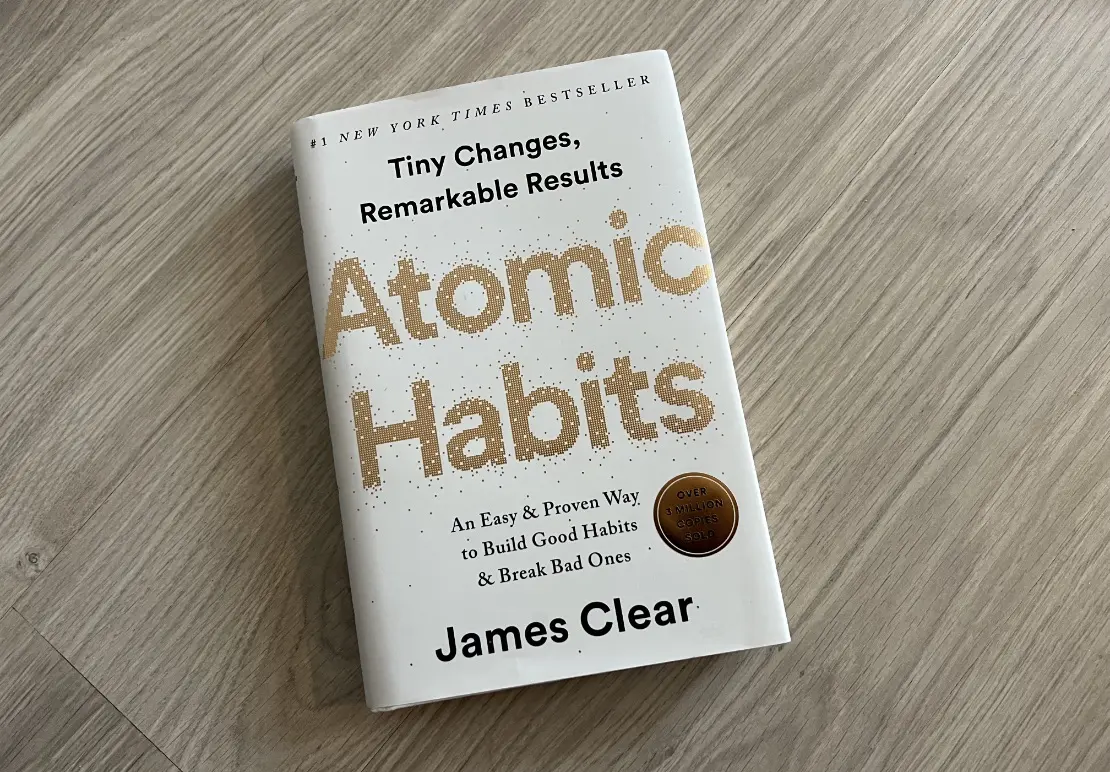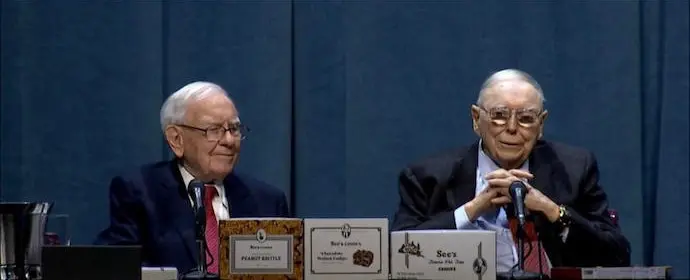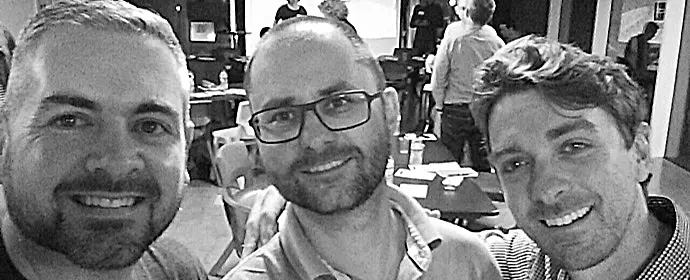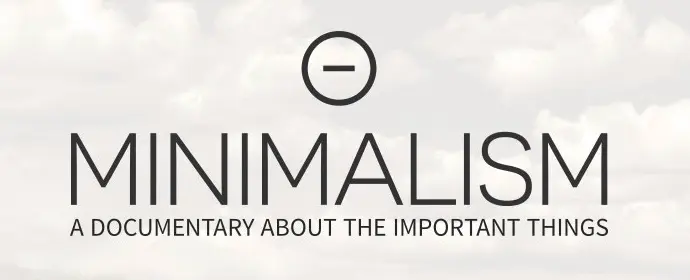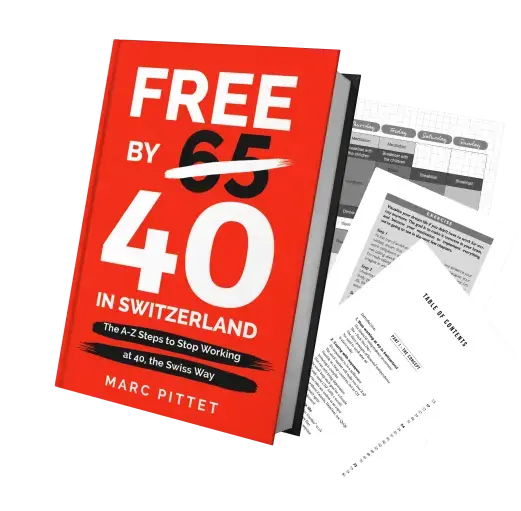It’s been a while since I’ve shared with you what I’ve learned from my latest reading.
And given the general interest I have in personal development, I thought “Atomic Habits” would be the right book to review.
In the past, I have reviewed my readings and extracted my takeaways from them.
This time I decided to do something completely different.
I love reading the comments and notes people take while reading books.
It’s unfiltered/unedited.
And it often captures the essence of how the book affects another person’s life, which inspires me to explore other ways of thinking.
So I’m sharing my private notes with you below.
It’s been extremely tough not to rework or edit them…
The only two things I’ve adapted are:
- Correcting spelling mistakes (genuinely)
- Adding context where it was really too confusing for someone who doesn’t know my life as I do
Every time I’ve felt like writing something down in my book, I always thought to myself, “this part of the book resonates with me because…”
Please let me kow what you think about this new type of review. Do you think its more interesting/useful than my usual bullet points?
Who do you want to be?
In terms of my blog and my professional job, Cal Newport is one of the people I look up to the most.
The book “Atomic Habits” recommends that in situations of doubt or otherwise, you should ask yourself the question: “What would one of the people I respect the most do?”
So for me it’s: “What would Cal do?”
The person I want to be (identity)
Blog
- I want to be a blogger who is consistent and adds value in every piece of writing.
- I want to be a “teacher” who guides without selling false promises but instead spreads wisdom and value.
- I want to be a company founder who aims for the long term and sustainability of his business, who shows up to work every day without burning out, “because there’s time”
Person
- I want to be a parent who is present and available for my playful children and who gives them the most precious gift of education
- I want to be FIRE (Financial Independence, Retire Early) by putting in the effort and preseverance it will take
- I want to be an long-term investor (stock market and real estate) who believes in “buying and holding”
- I want to be a creator rather than a consumer
Job
- I am the type of professional who listens and nevertheless is firm in being fair to my clients and collegues
- I am the type of professional who treats my clients as if their company were my own in the way I advise them
- I am an employee who treats the company that employs him as if I founded it
Tidying up (page 6)
[…] went to bed early every night […] I tried to keep my room clean and tidy. These improvements were minor, but they gave me a sense of control over my life. I started to feel more positive
This speaks to me about how good and zen I feel when such small things are under control too :)
Results that add up (page 7)
Changes that seem small and unimportant at first will turn into remarkable results if you’re willing to keep at it for years.
This resonates with me for two things:
- Any professional activity (my job and my blog)
- The stock market
Thinking long term means that it will compound exponentially.
And regarding the stock market, “buy and hold”, just like Warren Buffett did, wealth will exponentially too!
So: always think long term in whatever you do. In the short term there is little that is a successful strategy.
Practise > Teach > Succeed (page 8)
The reverse never works.
To write a great book, you must first become the book.
The publishers claimed that my book was not enough like this or not enough like that.
But I knew in my heart that the Mark of 2013 would have spent a lot of money on a FIRE shortcut book including all steps in detail.
That’s why I wrote my book anyways and published it on my own. This is one of the reasons why it is such a success (on its way to becoming a bestseller in Switzerland).
The same goes for my “Swiss Investor Program”. I have gone through every step and doubt I mention in the program. And it works. Several hundred people have decided to start investing and overcome their fear of the stock market thanks to it.
Real estate investment program in Switzerland: I waited until I had taken the step of buying before publishing the programme because I wanted to “do it myself first”. I had all the theory and knowledge that could guarantee my content if I had published it earlier, but I wanted to feel the thrill of signing up for a mortgage of more than 1 million CHF myself, with all the doubts that entails.
“Skin in the game!” as Nicholas Taleb so eloquently put it.
Improve, endlessly (page 13)
A strategy he called “aggreating marginal gains”, the philosophy of looking for a tiny margin of improvement in everything you do. Brailsford said, “The basic principle was born out of the idea that if you break down all the things you think about that go into riding a bike, and improve them by 1%, you will get a significant increase when you put them all together
This speaks to me about budget and saving on the way to FIRE.
It’s easy to say for yourself “Yea, but it’s only CHF 10 over the next 6 months, it’s not worth spending time to change that…”
Of course it’s not the most urgent thing if you haven’t tackled the biggest items, but nevertheless it adds up very quickly. And if you save it all up instead, you’ll be a millionaire and then FIRE faster than you think!
Physical health (page 15)
If you can get 1% better every day for a year, you’ll be thirty-seven times better when you’re done!
This resonates with me with the idea of going for a 30 minute walk every day for a year and see what it does :)
Compounding (page 16)
Habits are the compound interest of self-improvement.
I couldn’t have said it better myself!
Success (page 18)
Success is the product of daily habits - not one-time transformations in a lifetime.
My blog in 2023 is the result of 9 years of writing every day.
Bad financial habits (page 18)
If you’re a millionaire but spend more than you earn each month, then you are on the wrong track.
All work/effort is never wasted (page 22)
However, that work was not wasted. It has simply been stored. It is only much later that the full value of previous efforts is revealed.
This resonates with me in relation to all those blogs I started but never finished, but which taught me how to start a blog.
Same with all the posts at the beginning of this blog… I thought it wouldn’t work but I kept going.
Then I almost gave up in 2015 and 2016.
This was evident in my regularity at the time.
Then it started to pay off with an affiliate proposal for a product I was already recommending. I had just reached the plateau of unrealized potential.
Same with my job and all those things (including raises) that magically come without effort! Actually, it’s not magic, it’s that you’ve just passed a plateau of unrealized potential.
Objectives and systems (page 23)
Goals are about the results you want to achieve. Systems are the processes that lead to those outcomes.
Dreaming of writing a book vs. writing one hour every day first thing in the morning no matter what.
Result: “Free by 40 in Switzerland” written in 6-8 months, and published 3 months later!
Stop dreaming, take action, every day!
How to make money, the right way (page 25)
Focus on what you do at the beginning, and what comes out will automatically follow
Deliver high quality articles, and the money will flow from that.
Not the other way around!
Freedom, starting today (page 26)
Goals limit your happiness. A systems mindset provides the antidote. When you love the process rather than the product, you don’t have to wait to give yourself permission to be happy. You can be happy as soon as your system works.
This inspired me a lot. Yes, being FIRE will be cool, but today with all the cash we’re saving and the self confidence it generates, I already feel free.
And I’m going to keep working on this system in place and cherish it. Reaching the other end of FIRE will be just a step! Because in the meantime I’m already only working 80%, then maybe 60%, and gradually my freedom will get bigger and bigger 🎉
Long-term thinking (page 27)
Genuine long-term thinking is purposeless thinking. […] It is the cycle of endless improvement and continuous improvement.
This resonates with me in my job where I focus on always optimising what I do, doing it better, with more impact, and I’m getting rid of salary and raises more and more.
It also fits with the book “So good they can’t ignore you”, which makes you almost free now rather than at a certain amount of CHF.
Creating > Consumption (page 32)
If your identity is that of a person who consumes rather than a person who creates, then you will continue to be attracted to spending rather than earning.
This resonates with me in relation to frugality and FIRE.
We often talk about spending vs saving.
In fact, and this is also what I experience with my blog and its passive income, if you start creating (content, wooden objects, a tiny house, etc…), it’s incredibly satisfying and on top of that it allows you to earn money.
And all that time you spend creating is time you don’t waste spending.
And that’s pretty powerful, because the word “Create” is much more positive and motivating than “Save”!
So get creative!
Changing your identity gradually (page 39)
Changing your identity is a simple two-step process:
1/ Decide what type of person you want to become.
2/ Prove it to youself with small victories.
Idea: write this down after finishing the book=> get up and write 1'000 words every morning. Be careful: don’t make it too binding. I’m looking forward to the next chapters where there will be details on how to do it right.
Focus on the right thing (page 40)
The goal should always be to become that kind of person, not to achieve a particular result
A healthy, lean person, rather than losing 4 kgs.
The Cycle of Habit (page 50)
Together, these four steps form a neurological feedback loop - signal, craving, response, reward - that ultimately allows you to create automatic habits.
The importance of each step is critical.
Without a signal, there will be no habit.
A weak signal does not trigger a strong enough urge = not enough.
Response difficult to perform = not able to do it.
Reward not high enough = no reason to make it a habit.
This resonates with me for several reasons and areas.
The blog for one, where writing an article is always a difficult task to tackle, but one that I’ve learned to master.
And then publishing is synonymous with accomplishment, and also rewarding through the exchanges and the value I bring to the readers.
And in the long term I know it supports the passive income of the blog indirectly.
One thing I wonder is when, for example, on a quiet Sunday afternoon at home and I start a good book, and I’m looking forward to a nap: how do I keep the motivation to not sleep and succumb to the Sunday phelgm?
I imagine the book will tell me how to set up mini-rewards, like posting a message to my readers of my current reading to see what emulation it generates.
Or to create a draft article that I update with my notes, which gets better and better and keeps me motivated to read? We’ll see! I look forward to learning more about this mechanism and how to use it rather than it using me ;)
How to change habits (page 55)
The four laws of habit change are a set of simple rules that can be used to create better habits. They (1) make it obvious, (2) make it attractive, (3) make it easy, and (4) make it satisfying
Insightful intuitions (page 60)
The human brain is a prediction machine. It constantly observes your environment and analyses the information it encounters. […] With enough practice, you can spot clues that predict certain outcomes without consciously thinking about them. Automatically, your brain encodes the lessons learned through experience.
This passage resonates with me in relation to my job where my long experience makes me more intuitive than some of the more junior so-called experts.
It reminds me that I should not hesitate to trust myself, and that experience counts for a lot, not just expertise per se.
Sugar addiction (page 66)
The ‘point-and-name’ method is used on Japanese trains to reduce accidents by raising awareness: “If you want to cut down on your junk food habits but notice you are having a second biscuit, say out loud: ‘I am about to eat this biscuit, but I don’t need it. If I eat it, I will gain weight and it will damage my health.’”
A strategy that appeals to me for my sugar addiction.
It’s funny because Mrs MP takes on this role by calling me out when she sees me going for my Lindt milk chocolate bar when it’s not snack time ;)
But when she’s not there, I have no one to tell me anything!
Try it out for real!
Be aware (page 67)
The process of changing habits always starts with awareness. You have to be aware of your habits before you can change them
Typically, rewriting the list of my habits and writing them down made me aware of some of the things I had automatically fallen into.
For example, only getting up at 7am instead of 5:35 am on Monday mornings due to lack of preparation for a cool, quick reward with less effort related to the blog, vs. the feeling of “Oh I’m too lazy to get up and work on this new article topic this morning, I’ll work on it tomorrow
Whereas if I plan to work on, say, a mini design improvement for my blog that’s quick and easy to implement, it’ll give me a boost to avoid the “Snooze” button!!
How to set a new habit (page 70)
The two most common signals are time and place […] the format for creating an implementation intention is as follows: “When situation X occurs, I will execute response Y.”
I made this note on a Sunday evening when I was redesigning my website which launched in January 2023: “When the Monday morning situation beween 5:35 and 6:40 comes up, I will contact and pass on my website to my future freelance developer
This was an exciting and motivating task for me. And once I got the flow going, I then set about writing a new article.
New habits with success (page 71)
People who make a specific plan for when and where they will practice a new habit are more likely to stick with it.
Tested and approved by MP for a whole week. It works! Especially in the morning at 5.35am when I have a little acute phlegmatitis, the little phrase from the day before made me get up anyway! We’ll see how it holds up in the long run!
Definition of intention, then “robot” mode! (page 71)
*Once an implementation intention has been defined, you don’t have to wait for the inspiration to come. *Should I write a chapter today? Do I have to meditate this morning or at lunch? When the time of action comes, you don’t have to make a decision. Just follow your predertermined plan. The easiest way to apply this strategy to your habits is to fill in this sentence: I am going to [TASK] at [TIME] in [PLACE].
I used to do this naturally, but every few years I would fall back into indecision.
And since I started again 3-4 weeks ago, I see my efficiency increase drastically every Friday when I am focussed on writing my Swiss real estate investment program, and the other times reserved for writing blogposts.
Linking habits (page 74)
BJ Fogg’s formula for habit linking is: “After I have [CURRENT HABIT], I will [NEW HABIT].”
Get rid of bad habits (page 95)
One of the most practical ways to eliminate a bad habit is to reduce exposure to the signal that causes it
The little square of milk chocolate in the evening because I’m doing the dishes while watching the news - try to remove the catalyst? The dishes ^^? Or brush my teeth before washing the dishes and do it afterwards! Try it tomorrow!
Use temptation to your advantage (page 111)
Use the tempation structure: “Doing what you have to do allows you to do what you want to do”.
It resonates with me because it could allow me to find time to read while doing sports:
- Once I pick up the book I want to read, I get into a plank position
- Once in plank mode for 4 x 45 seconds, I read my book
Something to try out: Audiobooks (ugh I’m rather visual) while cycling or running? Maybe start testing in French so there is less concentration needed than with my English books?
Surround yourself with people with whom it is “normal” (page 114)
A family from Poland with 3 daughters becoming chess champions, and the author concluding: " Habits that are normal in your culture are some of the most attractive habits you will find.”
This resonates with me because my parents have always made it a priority to only spend on things that are thoughtul and not impulsive. And also with the idea that effort in life is a good thing and not something to be avoided.
Not being excluded is an advantage! (page 116)
Habits are attractive when they help us fit in. […] One of the most effective things you can do to develop better habits is to join a culture where the habit you want is normal […] Surround yourself with people who have the habits you want to have yourself. You will grow together.
This resonates with the saying I already know: “You are the average of the five people you spend the most time with.”
It’s true. I’m proof of that. That’s how I acquired my first rental property in France. And likewise (spoiler alert!!!), that’s how I bought my first rental property in Switzerland.
It makes me want to consciously surround myself around with Swiss real estate investors and entrepreneurs.
Solve the causes of your bad habits (page 134)
Solve the causes of your bad habits by creating a motivational routine of doing something you enjoy immediately before a difficult habit
Action, action, action (page 142)
If I come up with twenty ideas for articles I want to write, that’s a dynamic. If I actually sit down and write an article, that’s action. […] That’s the first lesson of the 3rd law: you just have to take action
This speaks to me as a blogger, as it would be my style to plan everthing out well before starting a new habit. “Just do it!”
How many days does it take to form a habit? (page 147)
The duration [21 days, 30 days, 3 months] you’ve been doing a habit isn’t as important as the number of times you’ve done it.
Physical exercise in the morning 6 x 30 seconds (page 151)
Example of agriculture that spreads twice as fast in Europe and the US as in Africa because of the ease of changing habits due to the same climate from East to West vs. North to South => “Make your habits so easy that you will do them even when you don’t feel like it”.
This speaks to me relating to the mini muscle strengthening exercises I used to do for 10-15 minutes every morning, then gave up.
Then I resumed, thanks to a 6 x 30 second workout only while my tea is heating up in the morning :)
Make your start-up easier (page 156)
Prepare your environment for future use.
This resonates with me because it reflects the way I end each day on my laptop: all windows closed, I have no files left on my Desktop and all apps are closed.
That way, the next day I start with a blank page, with my todolist sorted the day before with the 2 most important tasks of the day.
And I don’t get tricked by opening my laptop in the morning to start working, only to find the YouTube video or unfinished web page from the day before… and only start working 45 minutes after turning on my computer…
The 2 minute rule (page 162)
When you start a new habit, it should take you less than two minutes.
Instead of “read before bed every night” => “read a page every night.”
Clearly, it’s easier when you put it that way :)
And indeed, as James Clear says, when you’re in the flow it’s easy. But the hardest part is getting started. And this technique is like the starter on old cars to give the engine a boost :)
When you have trouble sticking to a habit, you can use the two minute rule. It’s a simple way to make your habits easy.
This speaks to me for the next time I have a drop in motivation that makes me stop my lower back strengthening at home, to get back on track quickly without pressure…!
Instant gratifaction (page 186)
Making the habit satisfying increases the likelihood that a habit will be repeated the next time. […] We seek immediate gratifaction as humans.
This typically speaks to me with writing a book, a blogpost, or a message to blog supporters.
Writing a book is hard because the satisfaction of publication is distant.
With a blogpost, you go from months to days between writing and publication.
And with a direct message, you get instant gratification.
In order to finish writing a book, I used this instant gratification technique by asking 10 readers who absolutely wanted to read my book first to pay now and receive each chapter as soon as it was finished writing (in draft mode). Suddenly, my motivation was boosted!
8 months later, you were holding my finished book in your hands :)
Does a habit have to be pleasant? (page 192)
“A habit has to be enjoyable to last.”
I always though that this sentence was for those who have no motivation…
And that I manage to create habits without immediate reward because I was brought up like that from a young age.
But in fact, this is a major key that I’m going to explore for some new habits (especially sports) that I never worked on.
Action, reaction! (page 193)
The cardinal rule of habit change: What is immediately rewarded is repeated. what is immediately punished is avoided.
All or nothing! Black or white! NOPE! (page 202)
The “all or nothing” cycle of habit change is just one of the traps that can derail your habits.
This resonates with me because whenever I broke the chain once, I get demotivated and it doesn’t encourage me to do it again the next day because the chain is broken.
But yes, the first time is OK, but it’s the second time you get back on the horse that you should pat yourself on the back!
You broke the chain? That’s life! Nothing is perfect.
So you should move on and start again at the beginning of the next chain.
Choose your game (page 218)
Like Michael Phelps in the pool or Hicham El Guerrouj on the track, you want to play a game where the odds are in your favor.
This speaks to me with the fact that I don’t do video coaching but instead prefer coaching by writing where I feel like I’m in my natural habitat.
Know your genetics! (page 219)
Genes do not determine your destiny. They determine your areas of opportunity.
I love this formulation. No victimization, just positivism!
Know yourself (page 226)
The more we understand our nature, the more effective our strategy can be.
This resonates with me because for many years I have been reading about psychology and personality traits, and it has helped me to know myself better and also to identify how others are.
This allows me to improve my relationships, especially at work and as a side effect to increase my salary regularly :)
Align the stars (page 227)
In summary, one of the best ways to ensure that your habits remain rewarding in the long run is to choose habits that fit your personality and skills. Work hard on the things that seem easy to you. Genes don’t eliminate the need to work hard. They clarify it. They tell us what to work hard on.
How to maintain motivation? (page 231)
One of the most consistant findings is that the way to maintain motivation and achieve peak levels of desire is to work on tasks of “just manageable difficulty”.
Interesting, but how do you know where you are on the scale between too easy and hard?
Easy is good (page 231)
When you start a new habit, it’s important to make the habit as simple as possible so that you can stick with it even when conditions aren’t perfect.
This resonates with me because when I start a habit, I always tend to imagine the ideal scenario.
Like if you want to start getting up at 5am everyday, it’s easy to imagine that every day is the same.
Except that you soon realise that you sometimes are going to come home from work later, or when you catch a cold, etc.
Variety is life! (page 233)
Without variety, you get bored. And boredom is perhaps the greatest villian in the quest for self improvement.
True in the business aspect, but also in married life :D
Never give up (page 236)
Standing up and not giving up when it’s boring, painful or exhausting to do so is what makes the difference between a professional and an amateur.
This speaks to me because with my previous blogs this is what happened. I gave up when I was working on a less interesting blog. And with my Mustachian Post blog it suddenly changed, because I am actually motivated.
Take the high road (page 239)
The downside of habits is that you get used to doing things a certain way and stop paying attention to the little mistakes.
This speaks to me about our family budget. Now that everything has been in place and optimised for years, we live with a kind of status quo (although I have my annual automatic reminders to double-check the most expensive recurring expenses).
Focus point for the my future self!
Identity crisis in sight! (page 248)
Maintain a small identity […]. If you’re a vegan and you develop a health problem that requires you to change your diet, you’ll be living with an identity crisis on your hands.
This resonates with me because FIRE is a very important part of my identity. What happens when I turn 40 but I still want to continue working?
After that, I’m reassured because the blog is a really good vector to share my evolution, and not a status quo.
Impermanence (page 249)
Everything is impermanent. Life is constantly changing, so you must periodically check to see if your old habits and beliefs are still serving you.
For some years now, I’ve been mentally tired of always having to do annual reviews, simply because I told myself at some point in my life that this was a good thing.
Rereading the why behind this idea makes me see it again as a positive vs. something that tires me out. Something to think about!
And you? Have you read the book “Atomic Habits” by James Clear? What was the most life-changing takeaway from it?
